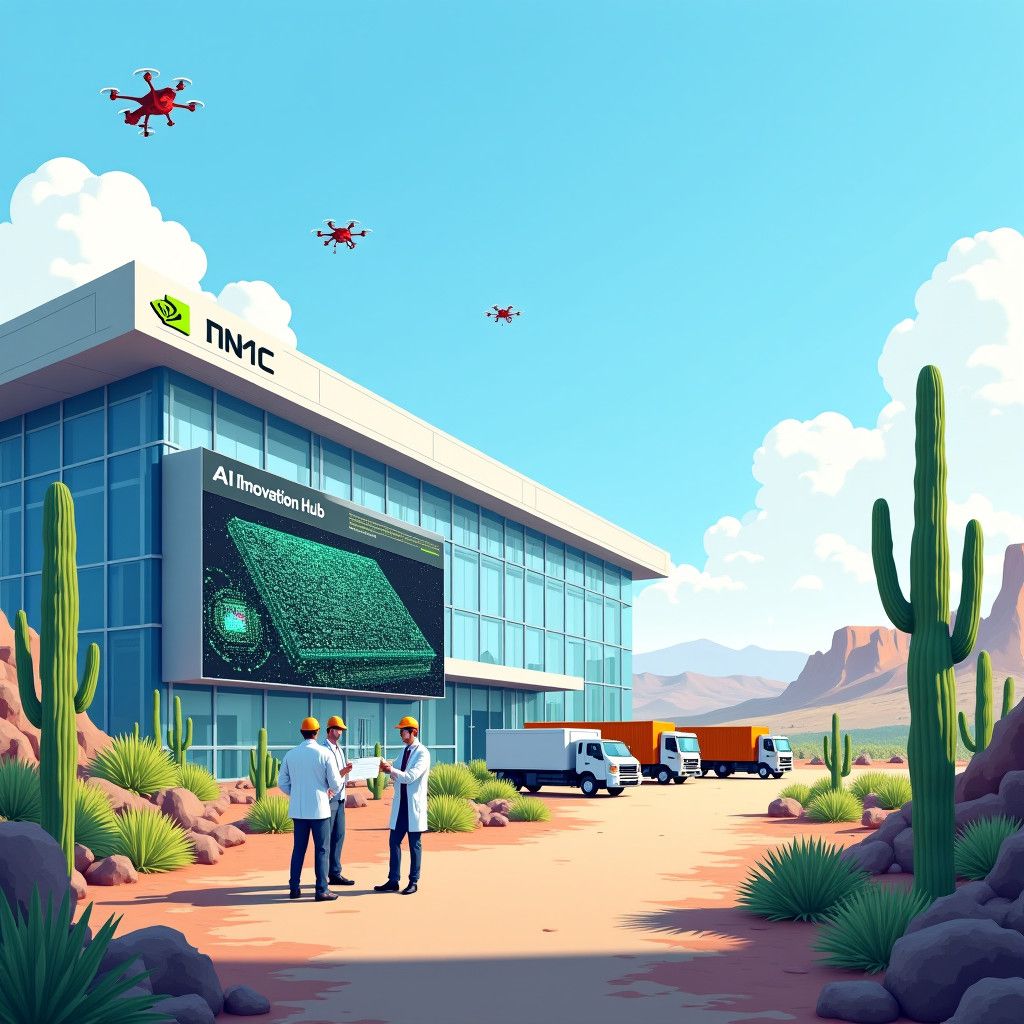In a significant shift in the semiconductor landscape, Nvidia is reportedly evaluating the potential of collaborating with Taiwan Semiconductor Manufacturing Company (TSMC) to establish a plant in Arizona dedicated to the production of advanced AI chips. This strategic consideration is rooted in the growing demand for high-performance computing capabilities necessary to power AI applications across various industries.
The drive towards setting up a manufacturing facility in Arizona aligns with broader trends in the U.S. technology sector, which has witnessed a compelling push for domestic semiconductor production. The COVID-19 pandemic illustrated the vulnerabilities in supply chains and the pressing need for reliable and localized manufacturing. As companies engage in a race to harness the full potential of AI, the reliance on foreign semiconductor manufacturers has become a focal concern for U.S. tech giants.
The Partnership’s Potential
The proposed plant, if established, would enable Nvidia to have a closer connection to TSMC, whose fabrication plants are known for their leading-edge production technologies. TSMC has long been recognized as a leader in semiconductor manufacturing, supplying chips to major players in the tech industry, including Apple and Qualcomm. By working with TSMC, Nvidia aims to leverage cutting-edge semiconductor technology to enhance its AI chip offerings, particularly the upcoming Blackwell architecture.
The Arizona facility could serve as ground zero for developing chips tailored specifically for the next generation of AI applications, which require rapid processing speeds and higher energy efficiency. For example, Nvidia’s current AI chips, such as the A100 and H100, have set industry standards in performance; developing these further in a domestic facility could solidify Nvidia’s dominance in the AI computing market.
Economic Implications
Moreover, this potential partnership is poised to create thousands of jobs in Arizona, contributing to the region’s economy. The semiconductor industry has traditionally been concentrated in East Asia, but initiatives like this are part of a growing trend to reshore manufacturing capabilities to the U.S. As policymakers offer various incentives to support domestic manufacturing, companies are responding favorably.
Arizona’s climate has already attracted significant investment from the semiconductor industry. Recent projects have included facilities from Intel and Micron, which highlight the state’s growing reputation as a semiconductor hub. The establishment of the TSMC-Nvidia plant would undoubtedly enhance Arizona’s status in this critical industrial sector.
Challenges and Considerations
However, several challenges accompany this potential development. First and foremost is the timeline—traditional semiconductor fabrication plants take years to build and become operational. Given the competitive landscape, Nvidia must navigate rapid chip design cycles while ensuring that the Arizona plant can deliver timely production.
Additionally, the complexities of U.S. regulations, labor shortages, and supply chain constraints may pose hurdles. The semiconductor industry relies on a network of suppliers for raw materials that, in many cases, are sourced globally. As new international policies on trade and technology emerge, Nvidia and TSMC will need to manage these risks effectively.
Long-term Vision
The consideration of an Arizona-based TSMC plant indicates Nvidia’s forward-thinking approach in the tech industry. By securing a local supply for its next-gen AI chips, Nvidia is positioning itself not just to meet current demand but to anticipate the future needs of AI deployment across various sectors. From autonomous vehicles to cloud computing, the applications of sophisticated AI technologies are endless, which only amplifies the urgency for dependable semiconductor resources.
In conclusion, Nvidia’s exploration of a partnership with TSMC to establish a chip manufacturing plant in Arizona represents a crucial step toward fortifying the U.S. semiconductor industry. As reliance on sustainable and rapid chip production grows amid the booming AI landscape, this collaboration could be pivotal in shaping the future of technology while boosting economic growth within the region.












